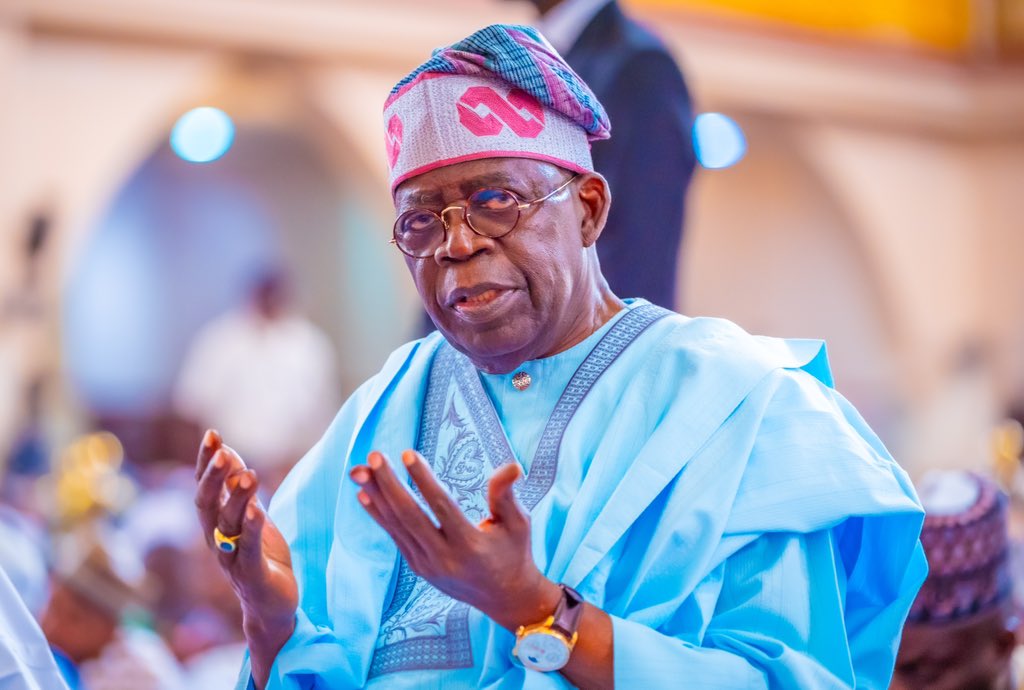868
By Myke Agunwa, Abuja
President Bola Tinubu has conferred posthumous national honours on the late Ogoni leaders known as the “Ogoni Four” and unveiled plans to restart oil production in Ogoniland, nearly three decades after operations were suspended in the oil-rich region due to unrest and environmental concerns.
The President bestowed the honours of Commander of the Order of the Niger (CON) on Albert Badey, Edward Kobani, Theophilus Orage, and Samuel Orage during a ceremony at the Presidential Villa, Abuja, on Wednesday.
The four were murdered in 1994 during a period of violent unrest in Ogoniland, Rivers State, a development that deepened divisions in the Niger Delta and preceded the controversial execution of Ken Saro-Wiwa and eight other activists in 1995.
While receiving the report of the Ogoni Consultations Committee, President Tinubu urged the Ogoni people to embrace unity and reconciliation.
“May their memories continue to inspire unity, courage, and purpose among us,” he said. “I urge the Ogoni people across classes, communities, and generations to close ranks, put this dark chapter behind us, and move forward as a united community with one voice.”
The President assured that his administration remains committed to peacebuilding, environmental remediation, and economic revival in Ogoniland. He also confirmed that his government will facilitate the resumption of oil production in the area.
“I am encouraged by the overwhelming consensus of the Ogoni communities to welcome the resumption of oil production,” Tinubu said. “The government will deploy every resource to support your people in this march towards shared prosperity.”
Tinubu noted that in 2022, the previous administration handed the operatorship of the Ogoni oil field to the Nigerian National Petroleum Company Limited (NNPCL) and its partners, and stressed that his government would build on that decision to ensure a smooth return to production.
He directed the National Security Adviser (NSA), Mallam Nuhu Ribadu, to immediately begin engagements with Ogoni communities, NNPCL, and other stakeholders to finalise modalities for restarting operations. The President also tasked the Minister of Environment to integrate pollution cleanup and remediation into the ongoing dialogue with the people.
In his report, NSA Nuhu Ribadu explained that the consultations involved all four Ogoni zones as well as representatives of the diaspora. He said the deliberations captured widespread demands for structured participation in oil production, accelerated environmental cleanup, and sustainable development initiatives.
Prof. Don Baridam, Chair of the Dialogue Committee, emphasised that the report reflects the collective will of the Ogoni people and should serve as a blueprint for government action. He recommended the establishment of an inter-agency task force to implement the proposals, ensure community participation, and sustain peace.
Oil exploration in Ogoniland was suspended in 1993 following mass protests over environmental degradation and lack of community benefits. The protests, led by the Movement for the Survival of the Ogoni People (MOSOP), drew international attention but also provoked a violent state response.
In 1995, writer and environmental activist Ken Saro-Wiwa and eight other Ogoni leaders were executed by the military regime of Gen. Sani Abacha, sparking global outrage and Nigeria’s temporary suspension from the Commonwealth. The Ogoni crisis became a rallying point for environmental justice and human rights movements worldwide.
Decades later, oil wells in the area remain untapped, while Ogoniland continues to grapple with pollution, underdevelopment, and divisions among its communities. The United Nations Environment Programme (UNEP) had in 2011 recommended a major cleanup of contaminated sites, but progress has been slow.
President Tinubu’s decision to honour the Ogoni Four and reopen dialogue on oil production marks a new phase in efforts to reconcile with the Ogoni people. His assurances of environmental cleanup and structured community participation are expected to be closely monitored, given past government promises that yielded limited results.
If successfully implemented, the initiative could restore economic activity to Ogoniland while also addressing decades-old grievances that have shaped Nigeria’s environmental and human rights discourse.



